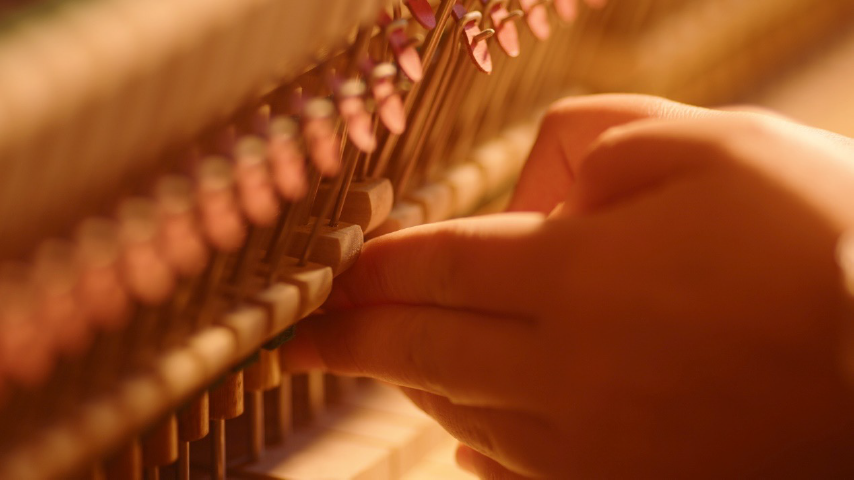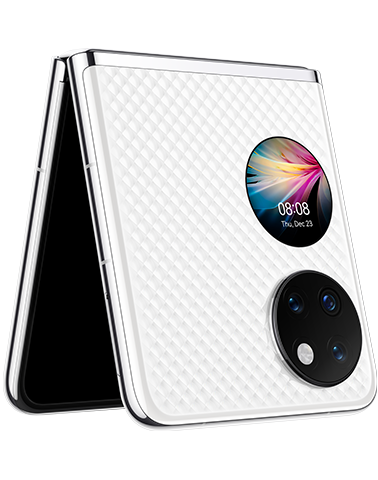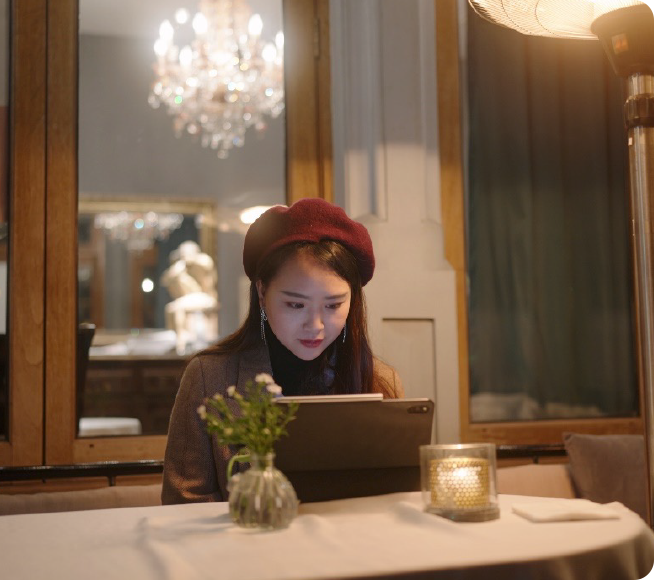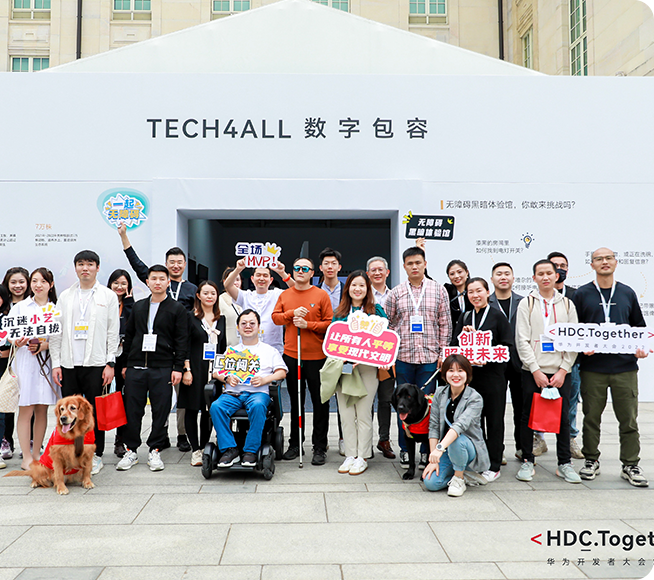
Richard Yu
CEO, Huawei Consumer Business Group
Over the past 10 years, thanks to the trust and support of consumers, Huawei Consumer Business Group has made unprecedented achievements. Our business achievements mark a new starting point for us, but also come with the addition of greater responsibilities.
The global telecommunications industry is growing at breakneck speed, digital transformation is surging, and the era of full stack, 5G, and AI is upon us. New abilities enable us to address both growth and sustainability. We continue to keep our mission in mind and have a clear and broad perspective of the social responsibilities we are assuming, while reflecting on our relationships with consumers, society, and nature.
The ways in which we have improved our products over the past 10 years align with our progress in sustainability from initial exploration to systematic practice.
Products and consumers: Products for everyone in an inclusive digital world
We believe that everyone is entitled to benefit from digital convenience and have worked from the start to design products that are accessible for everyone. Through user research, analysis, and cooperative testing, we improved the accessibility experience of Huawei phones from the system level. In 2018, we launched the StorySign smartphone app with our partners, using AI technology to open up a new world of literature for deaf children. In 2019, we collaborated with developers to develop more useful apps, further extending technologies into our ecosystem platform. We have learned that it takes attention and engagement from more stakeholders to advance information accessibility.
Products and nature: Balancing product competitiveness and effective resource utilization
We firmly believe that our growth and development cannot come at the expense of the environment. We have reduced the usage of plastic packaging materials and improved our products' energy efficiency, while ensuring longer battery life. We have enhanced our research into durability and reparability, reducing resource demand and consumption. We also continue to expand the scope of our trade-in program and have established an E-waste Recycling Program to prevent pollution from electronic waste.
Products and society: Exploration of technology's potential in helping us create a shared better future
Products and ecosystems allow us to connect closely with our developers, partners, supply chains, and communities. We established the HUAWEI Developers forum to enhance developers' capabilities. We take a local procurement and suppliers approach to build a prosperous and harmonious industry ecosystem with our industry chain partners. We responded to the COVID-19 pandemic in 2020 with new product and service ideas. Efficient, convenient, and effective communication has prepared us to face future challenges.
Despite enormous challenges, we will continue to make breakthroughs on the path towards sustainable development and resolve problems through innovation. "Information accessibility" benefits more people, "education and health" supports the creation of shared value, "environmental protection" helps us coexist with nature, and "corporate responsibility" is the foundation of our ethical code.
This report is a comprehensive reflection on the initiatives we have carried out, a clear presentation of our current efforts, and a new positioning for the future. It summarizes our consumer business's sustainability achievements and offers a future roadmap. For some tasks, current conditions may not be fully ready, but we have prepared for the future. Anything is possible with sheer determination and adequate investment. We are already and will always work hard for a sustainable future for all.
about sustainability

Information Accessibility
Huawei hopes that everyone can experience the benefits of technology.

Education and Health
Huawei products and services are designed to help people improve their digital skills and manage their personal health.

Environmental Protection
Huawei prioritizes the protection of our world and its natural resources above all else.

Corporate Responsibility
Huawei repays consumer, supplier, and community trust with responsibility.
Information Accessibility Helps People with Disabilities
Everybody has their own challenges that they must face in life. It takes courage to stand up and fight when those challenges feel insurmountable.
While there is no denying we must all find that courage within ourselves, we don't have to fight alone. Technology is one such tool that we can share to empower others, especially people with disabilities.
"I can't see the world, but I want the world to see me"
Former sailor athlete Cao Shengkang currently travels around the world with just a white cane, a backpack, and a pair of sunglasses. So far, he has visited 38 countries and 5 continents, including Mount Kilimanjaro.

A native of China's Anhui Province, Cao was hit by a speeding tractor which permanently damaged his eyes at the age of 8. Within just a few years, his eyesight continued to deteriorate until he was left completely blind.
"I felt like I lost the whole world." As he got older though, his drive to "see" the world led him far from home, with little more than his guide cane. It was at the top of steps of the Potala Palace, with the support of other climbers, that he found his calling.

"Smiles on people's faces can shed lights on the path forward for ourselves and others". Even though he could not see the world, he said, the world could see him. At the top of the mountain, he could stop and breathe in the fragrance of the mountain flowers. He also wanted to share his achievement with friends and family, and thanks to the Screen Reader feature that comes with Huawei phones. By connecting the phone to his smart glasses, he was able to discreetly listen to the phone's narration of what was on screen, making him just another bystander enjoying the view and documenting new memories.
"I live to feel the thundering of my heart"
Ho Li was born in the 90s and lives with hearing impairment. He has been an avid boxer since the age of 19. He trains for at least 4 hours a day, in the hopes of realizing his dream of becoming a boxing champion. During training, he selects the Boxing Mode on his Huawei watch, which collects his exercise data and offers smart recommendations accordingly. Thanks to his ceaseless training, he has achieved good results in various competitions.

"Although I'm deaf, I can feel my heart pounding when I'm boxing. I've been enjoying every day of my life", said Ho. Some say that you have to give up your dreams to survive. Luckily, this is not an issue for Ho, as he remains passionate in life and in his journey to pursue his dreams. He works as a food delivery driver to earn a living. Technology helps him a lot with his work.

The AI Subtitles feature on the Huawei phone converts voice messages to text. Live captioning can also be generated for living streaming.
What's more, this feature is also available during phone calls, converting the voice of the person on the other end of the call to text, and converting the text inputted by Ho into voice for the other person.
"Music just makes me happy. I can hear the slightest changes in pitch"
Bubbly Cai Qionghui is a professional piano tuner. Her ability to hear the slightest changes in pitch while adjusting the tension of piano strings makes her perfect for the job, even if her visual impairment prevents her from seeing the instrument itself.

"Pianos have 8,800 to 10,000 parts. Many have asked me how I could possible maintain a piano if I can't even see how all those parts fit together." But she has never let these doubts hold her back. After years of hard work, Cai is well recognized in her field, with a constantly growing list of steady customers.

She visits her customers with the help of her guide dog Aladdin, the Screen Reader feature, and voice assistant on her Huawei phone. While Aladdin keeps her safe on the road, her phone makes sure she is never led astray, always has an umbrella when it rains, and always knows where the closest mom-and-pop shop is for dinner.
At home, the phone's Tap to Connect feature also helps her instantly indulge in her passion for music, networking her vast musical library with speakers around her apartment.
"I intended to help the world better understand people with disabilities"

Peng Linqian is an up and coming entrepreneur who wants to help the world better understand people with disabilities, like herself.
The founder of a social work organization in Chongqing, Peng focuses on the educational needs of hearing-impaired teenagers. One of the project's many initiatives is an art festival to encourage children with disabilities to paint and unleash their imagination. Her "Big Thumb" Bilingual Classroom also provides professional resources for families with hearing-impaired children and was awarded first prize in the Sichuan-Chongqing Women and Children Public Welfare Project Competition.

Technology has played a huge part in Peng achieving her dreams. Her online public welfare lectures are subtitled using AI, bringing her conversations with her guests to more and more of the hearing impaired around the world.
Action is the key to success. Huawei has been taking action to invest continuously in information accessibility, which is a critical part of the company's sustainable development initiatives. Huawei hopes to create more accessibility services for people living with disabilities to improve their lives.
An Intimate Discussion on Accessibility at 2022 Huawei Developer Conference

Zheng Rui joined a group of other Huawei users today at Songshan Lake, Dongguan to attend the 2022 Huawei Developer Conference. These users were different than other attendees though – they are all software developers, who happen to have significant physical impairments.
Together, they met with Huawei Consumer Business Group's COO Kevin Ho to discuss how accessibility features in Huawei's consumer products are being developed to help people like them. Kevin said, "We work hard to make sure we prioritize 'less visible' features in our products, not just the flashy numbers on our products' stats sheets."

Connecting people with technology
Zheng Rui was born in 1989 and quickly diagnosed with Morning Glory Syndrome (MGS), a birth defect that changes the shape of the optic nerve. Zheng is completely blind in his right eye because of MGS and can only see shadows with his left eye. Despite this, Zheng's grew up sightseeing with his family as a child, and even managed to pass the Chinese college entrance examination with a 30x magnifying glass as his aide. In 2007 he was admitted to Shenzhen University's architectural design program, and he has lived in the southern Chinese city ever since.
According to the World Health Organization, more than 1 billion people around the world live with some form of disability. In China, 17 million people are impacted by visual impairments and 27 million people with hearing impairments, and 70 million people diagnosed with dyslexia.
As one of China's "physically impaired", Zheng Rui has spent years advocating for his peers in Shenzhen. He now serves as the Vice Chair of the Shenzhen Association for People with Visual Impairment and an official ambassador of accessibility services for the city of Shenzhen. He said, "Everybody lives with some difficulties or challenges, even if they present themselves in different ways." Last year, Zheng also volunteered to work at the Accessibility Exhibition Zone at Huawei Developer Conference 2021 to help show how the company is using smartphones to address such problems.

Zheng admits though, that he had some concerns about how he could read story books for his child. Luckily, Huawei phones come with the text recognition feature that helps him understand what the story is about.
Zheng tried the feature with one of his kid's favorite storybooks used to teach classical Chinese idioms, and use his own words to retell the story for his kid. "Because of my visual impairment, I can't just sit down with my kid and read them a book. This tool actually worked though, which enabled me to help him study more."
Tech for many and tech for the few
Another attendee who wore a plaid shirt and jeans, Zou Shiyong, stood out from his fellow software developers because of his faithful guide dog Liuliu.

Zou Shiyong was born in the 90s in a small mountain village. He was always fond of sports and electronic gadgets. When he graduated from the Wuhan School for the Blind, he stayed on to start teaching computer programming. After 9 years of teaching though, he decided to spread his wings and moved on to work for Huawei as an accessibility testing engineer. Today, his companion Liuliu together with a mobile navigation app and an advanced digital headset help him commute to work and navigate the bustling metropolis that is Shenzhen. At work, he helps test the accessibility features of Huawei phones to identify potential problems and come up with solutions.
His past experience proves to be highly valuable at Huawei. He encountered some difficulties at the early days of his new job, like many other new comers. However, he did not give up and keeps improving his capabilities.
Since he joined Huawei, Zou says the company has made massive improvements in its accessibility features. He is personally most proud of their reduction of screen reading latency by 1 full second. During his pre-release tests of HarmonyOS 3 in July, Zou noticed that the system suffered from frame freezes when using the screen reader function. Upon further analysis, he found that the function was conflicting with a touch recognition feature, resulting in certain gestures being misread. He and his colleagues were then able to optimize the feature and eliminate this conflict.
He said, "I am proud that Huawei has invested so much into this. By following their principle of "Tech for All", we have been allowed to focus on delivering outstanding user experiences for even very small, specialized groups of users."
Bright plans for the future
Kevin Ho also shared his own stories working on accessibility services at the meeting in Songshan Lake.
He added that even though the average consumer doesn't often think about, or even notice, many accessibility features, these services are important to Huawei because of the size of the impact they can have on even just a few users. He also discussed how it is important to Huawei that accessibility features are not just developed for the people that will use them, but also that they are developed by the people that will use them.
From a larger perspective, he explained, it is important to also increase the visibility of these features and the challenges they address. Everyone, at some point, is likely to suffer from at least a temporary disability at some point in their lives. A person recovering from a sudden illness could benefit hugely from the voice activated device controls Huawei's AI assistant Celia can provide. And everyone can benefit from other accessibility features on our phones as our eyesight and hearing degrade as we get older.
Kevin said Huawei sees information accessibility as an important part of the company's sustainable development initiatives. Huawei has committed to improving accessibility experiences by combining advancements in AI, software, and hardware through the HarmonyOS ecosystem. In addition, he said, Huawei has decided to offer open accessibility services and framework capabilities to its HarmonyOS ecosystem partners. This will equip other developers with the tools they need to make their own products and innovations more accessible to all.





